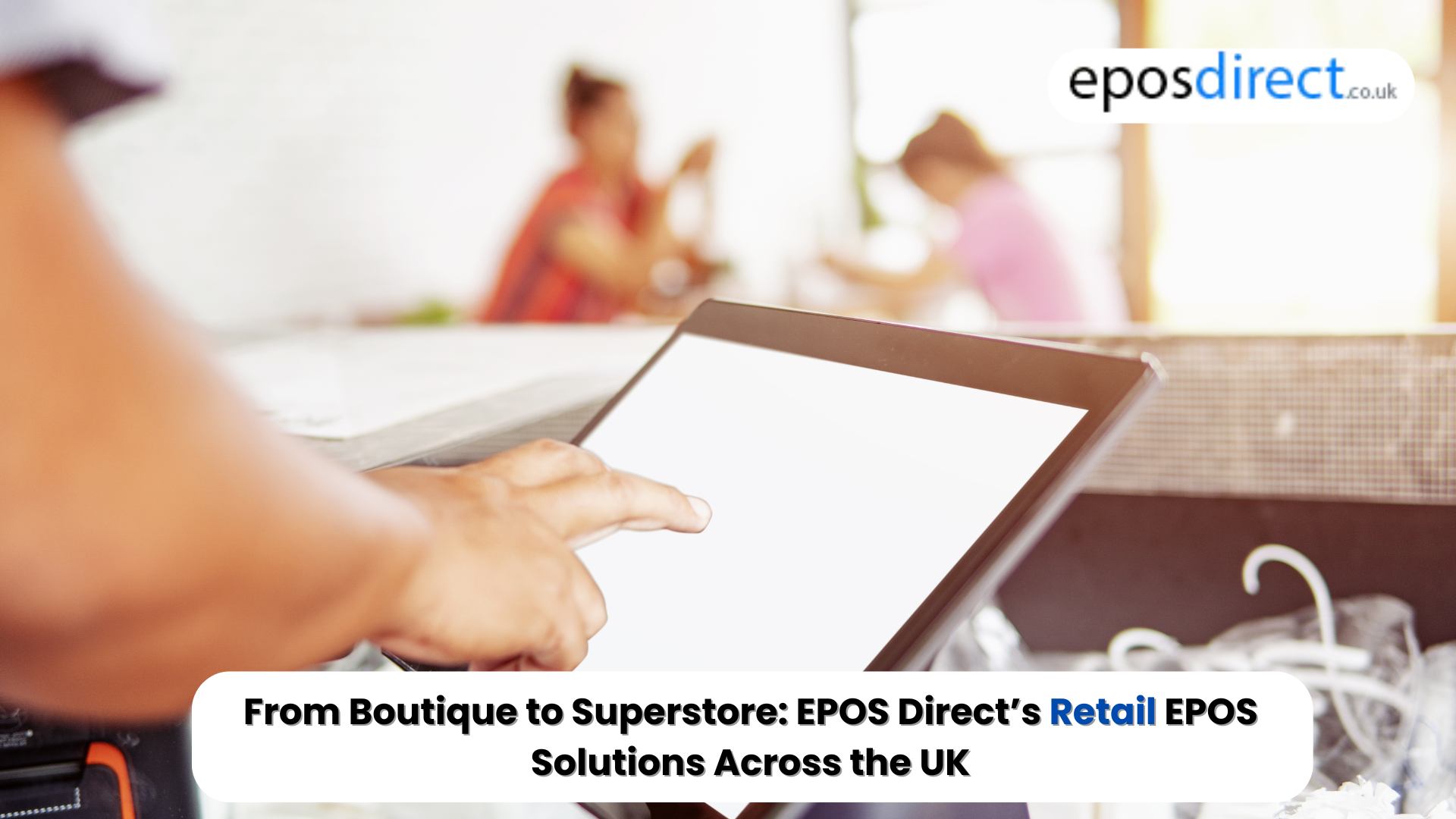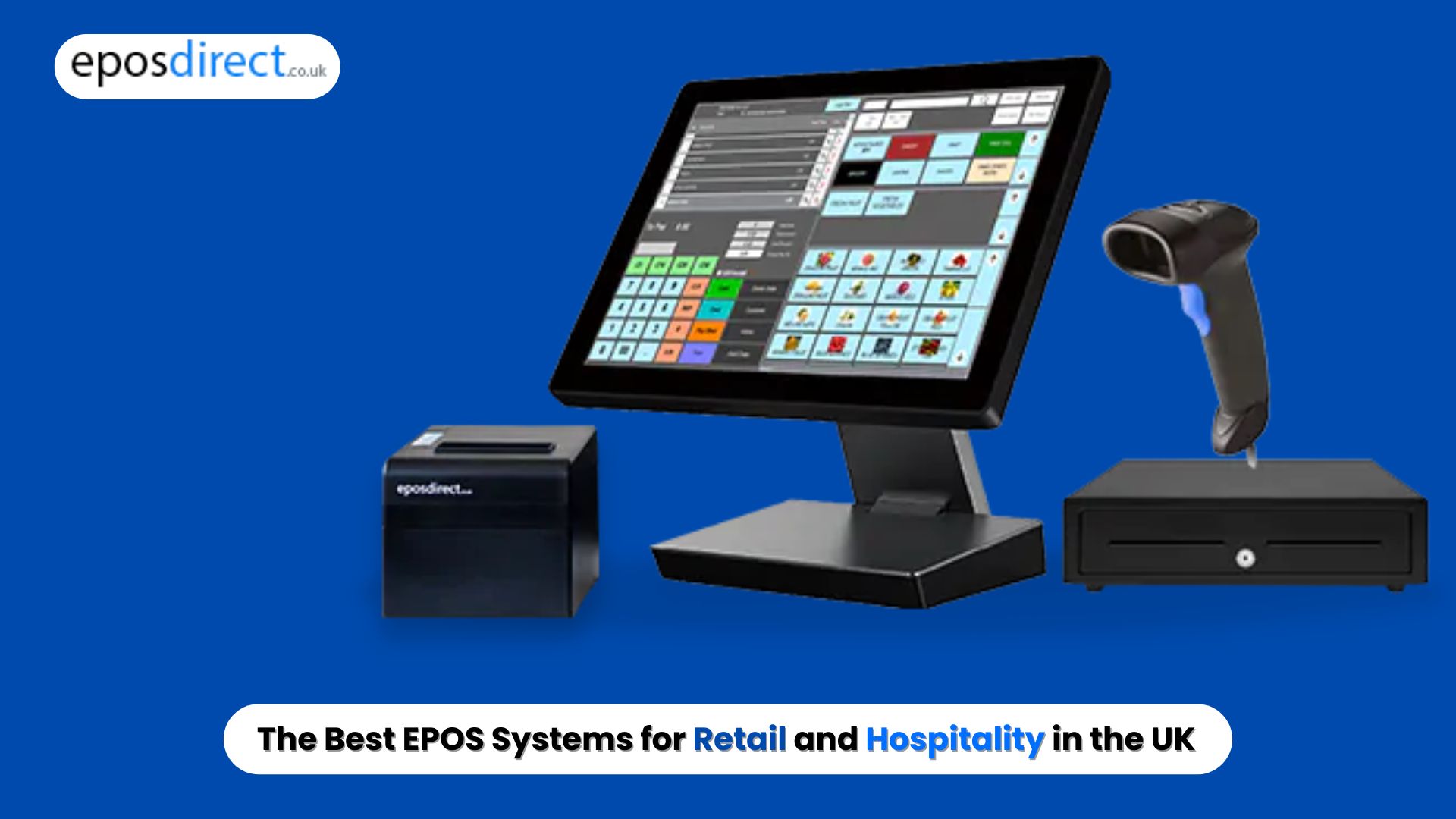We use cookies to make your experience better.
To comply with the new e-Privacy directive, you agree to the privacy policy and our use of cookies
Every Retail Business Should Use An EPOS For 12 Reasons
1. Accepting the Widest Range of Payment Methods
With the help of card swiping dongles making it easy for offline customers to swipe their card anywhere, and online payment processing accepts almost any form of payment. An EPOS can equip your company to collect payments from as many as many customers as possible. If you want to accept foreign currencies, direct transfers from banks funds from a payment processing account? All of those possibilities are within reach using a versatile system.
2. Ability to Distribute and Accept Store Gift Cards
An EPOS can position you to offer and accept virtual and physical gift cards which can be customised to your liking. This will increase the return business and referrals because people will be practically obligated to spend the funds with your store once they have loaded the money onto one of your gift cards. Gift giving and sharing are great for spreading brand advocacy and awareness.
3. Compatibility with Digital Shopping Carts
Ecommerce website has a robust shopping cart system that customers use to select and pay for items. It will be helpful for offline and online sales business. An EPOS system helps to centralise online shopping cart data in to the same interface which is used to manage offline sales. Integrating an advanced epos system will help you to integrate with the leading digital shopping carts seamlessly. It helps to streamline customer experience and facilitates a high rate of satisfaction and loyalty.
4. Better Inventory Management
An epos system continually update data in real time as each purchase is made by splitting inventory management into a separate department. An epos system can even be set to issue an alert notification when items are running low and need to be restocked. An epos system can raise your bottom line by preventing a reduction in sales caused by out of stock inventory.
5. Accurate Accounting and Analysis
Having a detailed inventory and receipt tracking built in your system. An epos system allows for the utmost accuracy and consistency in your accounting practices. This data can also be used to enhance sales analysis, spot discrepancies and opportunities for improvement. Accounting data from all stores and sites can be displayed within a single administrative interface representing your brand’s finances as a whole.
6. Pursuing Projected Sales Targets
Sales targets and objectives are set by epos systems for stores and employees. Track an individual employee performance and identify your strongest and weakest team member. Can assess store results on a daily, weekly and monthly basis. These systems provide powerful goal oriented initiatives and valuable insights that can be used as primary points of focus during corporate meetings and conferences.
7. Connecting the Management of Multiple Stores
Companies can use epos to bring information together, instead of having to merge databases and add up the revenue and other stats of each individual location. A centralised sales management approach is ideal for any business that currently has multiple locations or expanding plans in near future. This functionality of epos benefits companies that operate online stores in conjunction with a single offline location.
8. Simplifying Business Management Data
Corporate analysis is difficult enough without having fancy charts, graphs and terminology, each of which come with their own learning curves. A simplified epos can display data in easy to understand formats that will help managers for conclusions without any manual effort. In this regard epos systems enhance productivity and proficiency of managerial staff.
9. Flexible Reporting Capabilities
Sales reports not only necessary to get better look at the company’s progress and current obstacles but also impress potential investors, associates, partners and stockholders. A good epos system offers reporting capabilities that can be rendered on an end of the day, weekly and monthly or yearly basis. You are provided with an alternate that can provide to choose a custom time range to measure specific changes in relation to certain trends or influential company events.
10. Easy for Customers and Employees to Use
A conventional cash register is too far from the convenient of a touchscreen based epos system. Manager and owners can access the administrative side of an epos from their smartphones remotely anywhere with the help of an internet connection. There is an offline mode that allows data to be synced immediately when the system reconnects to the internet, making it possible to continue business as normal even without an internet connection.
11. Implementing Customer Rewards Systems
It is necessary to give customers a good reason to continue doing business with you, and a best way to provide rewards to repeat shoppers. An epos can give your customers the opportunity to input discount codes and rewards members with login credentials in order to receive exclusive discounts, rebate and points that will give customers a reason to remain loyal to your brand.
12. More Detailed Receipts
A typical POS will usually print generic receipts that contain basic information like time, date and itemized list of the products purchased next to their price. An epos can provide data beyond on receipts themselves and within the administrative reporting interface. Although this seems like an additional perk to your customers and an impression that they are dealing with a professional company.
Equipping Your Company with the Tools Needed to Compete
Optimising customer experience and providing your business the ability to interact with different customers and payment methods is an essential part of equipping the business for success in long term. Now-a-days every niche is becoming increasingly competitive, so it’s not about satisfying customers but it’s all about outdoing the competition. As epos systems are used by many companies to their benefit, an advanced epos is basically a requirement to avoid becoming obsolete.








